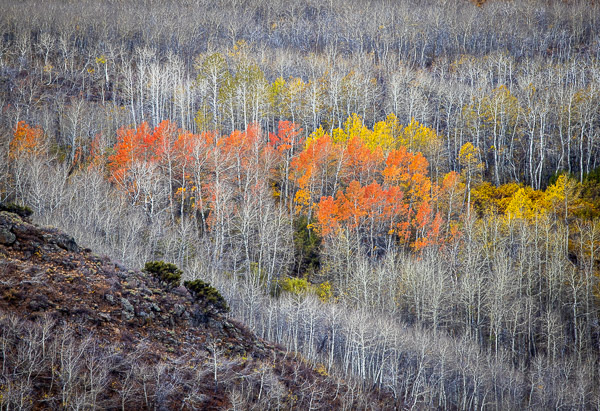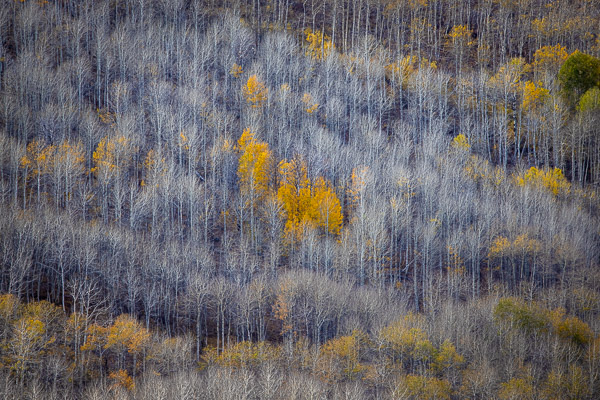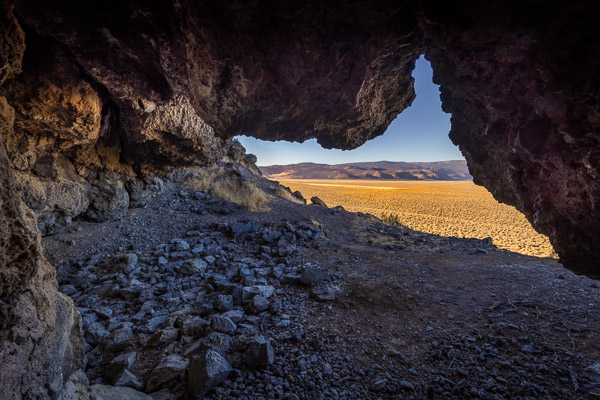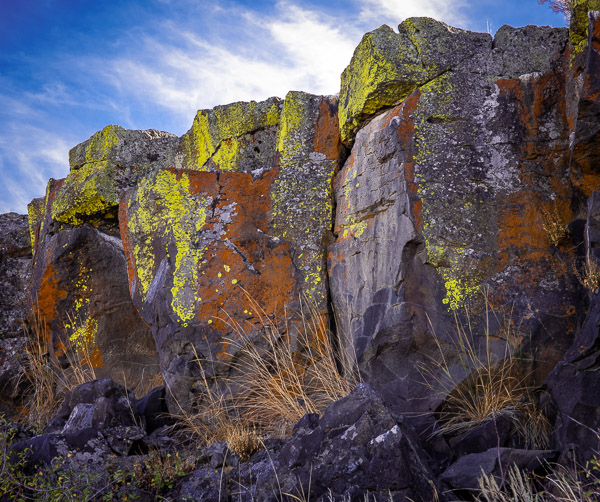With our unseasonably warm weather, I had been in a quandary when to schedule my annual aspen color trip to Steens Mountain. The peak leaf color usually occurs for 2-3 days within a 3 week window centered around the first week of October. And since timely firsthand reports are very rare, it’s a crapshoot when to take the 6+ hour roundtrip drive. With cooler stormy weather finally forecast, I departed on the 13th — more than a week later than usual. Upon arrival, it turned out that I was at least a week late for the high altitude aspen, and a few days to a week early for the aspen at the bottom of the Steens gorges. And it didn’t look like it was/will be a real colorful year for either. I did find a small pocket of high altitude color off in the distance and, after a moderate hike, I at least came home with a few decent images.
So, after a few hours of shooting and a overnight camp at the Steens, I decided to move on and explore nearby Hart Mountain in depth. I had visited its Petroglyph Lake in 2008 (image gallery) and was excited to see more of this wildlife refuge. I spent a long, enjoyable day driving most of its backroad areas, some with small aspen groves…and I returned home with a few more images. One highlight which wasn’t documented photographically was the many Pronghorn antelope that roam the sage plains — I need to make a special trip someday to “focus” on these difficult-to-“shoot” animals. For the day’s sunset, I explored Hart Mountain’s western escarpment, which drops off to Warner Valley & its many lakes.
I then continued west, past Abert Lake (with very little water this year), to the Chewaucan River Narrows near the small town of Paisley. I overnighted there and, at sunrise, I attempted to find a “secret” nearby petroglyph rock panel — unfortunately without success.
For the trip’s last stop, I drove to the Paisley Caves, where evidence of North America’s oldest human habitation has been uncovered — 13-15,0000 years old! It was great fun to explore this site and imagine what it has witnessed these last millennia!
One positive trip outcome was that I became well acquainted with my new camera and came to love some of its new features — principally the increased resolution (45 megapixels), markedly increased sensor dynamic range & low light capabilities, new in-camera-body image stabilization, and a decreased size & weight.
See the trip’s panoramas and images in the Southeastern Oregon Gallery





